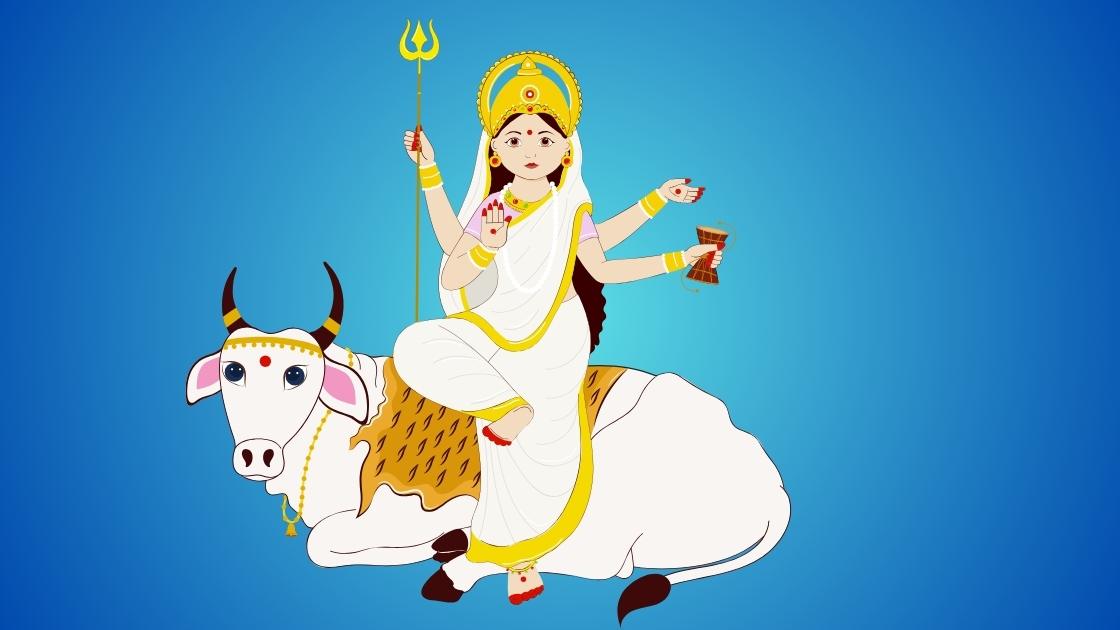Day 8 - Mahagowri

On the eighth day of Navaratri, known as “Ashtami,” the goddess Mahagauri is revered and worshipped with devotion. Here’s more information about Mahagauri and the significance of the eighth day of Navaratri:
Goddess Mahagauri:
- Mahagauri is the eighth manifestation of the goddess Durga.
- Her name, “Mahagauri,” translates to “The Extremely Fair” or “The Great White One,” referring to her pure and untarnished form.
- Mahagauri is depicted as a serene goddess with a fair complexion, dressed in white garments.
- She holds a trident (trishul) and a drum (damaru) in her hands.
- Mahagauri represents purity, peace, and serenity.
- Devotees worship Mahagauri for the purification of the mind and soul.
Significance of the Eighth Day (Ashtami) of Navaratri:
- Ashtami marks the eighth day of the Navaratri festival and the worship of Mahagauri.
- Devotees seek her blessings to attain purity of thought, word, and deed.
- Mahagauri’s divine energy is believed to cleanse the mind and soul, removing impurities and negativity.
- Fasting, prayers, and offerings are made to honor Mahagauri, with some devotees observing specific dietary restrictions.
- Temples and homes are adorned with decorations and white flowers as a symbol of purity and devotion to the goddess.
The eighth day of Navaratri is a time for devotees to purify their thoughts, actions, and intentions and to seek inner serenity and peace. Mahagauri’s divine grace is believed to wash away impurities, both external and internal, helping individuals achieve a state of purity and tranquility. As Navaratri progresses, each day allows devotees to deepen their connection with the different forms of the goddess Durga and to strengthen their spiritual understanding and devotion.

